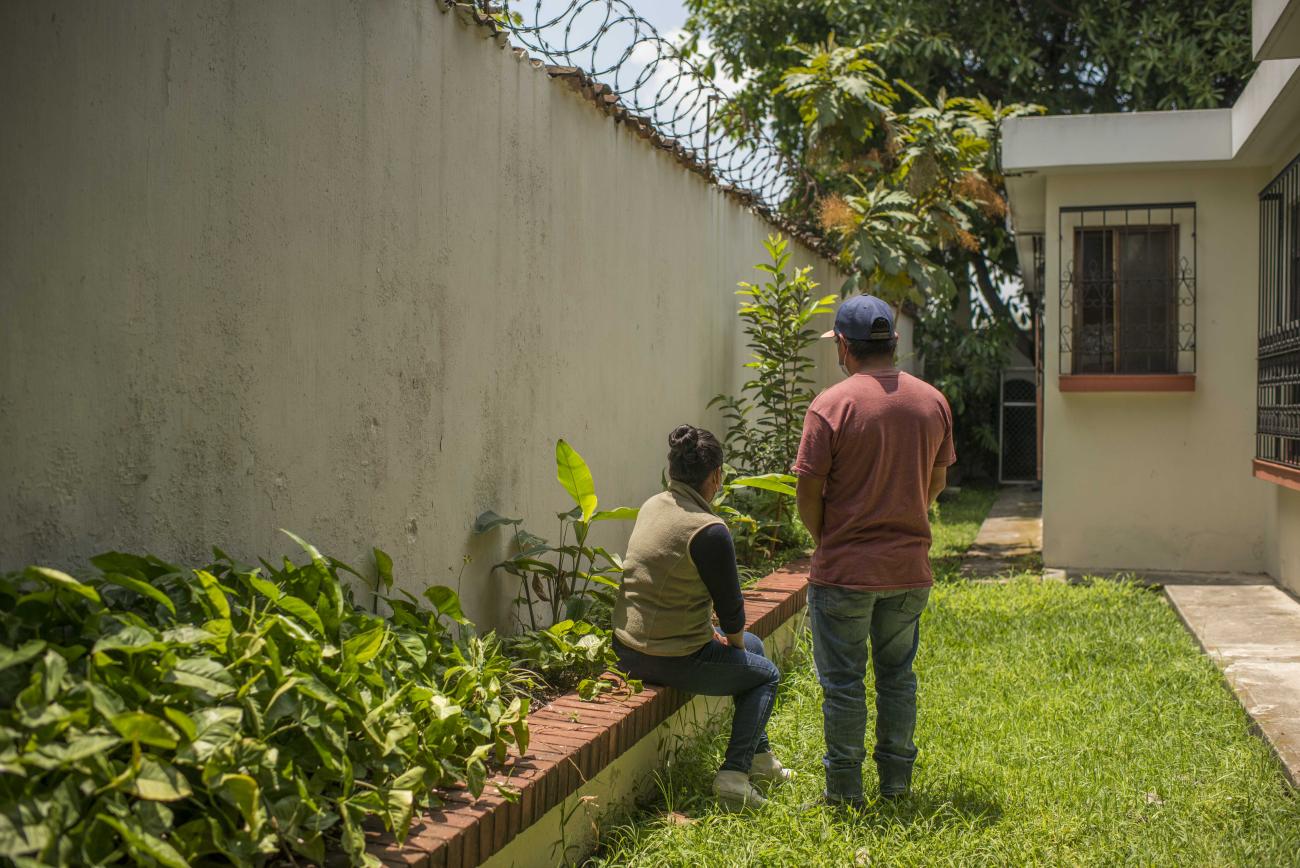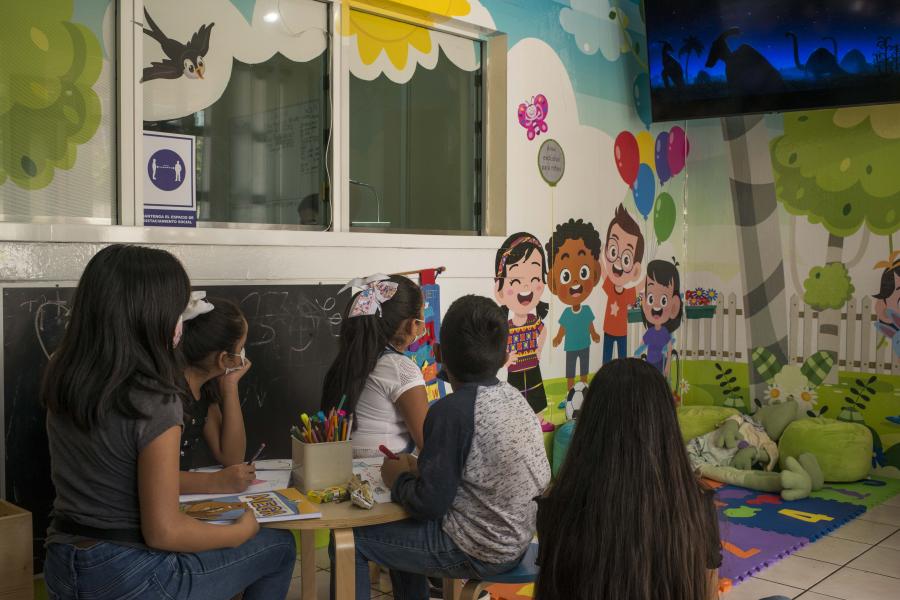Living on the run

In the neighborhood, choosing the life you want is not an option, not even refusing to accept the fate of misery and death that young people have to do.
In the neighborhood, choosing the life you want is not an option, not even refusing to accept the fate of misery and death that young people have to do.
Mario has no name. He has not had it since when he began to receive the first threats in the community where he was born and grew up, until he became a fugitive.
Mario became a widower when the eldest of his two children had not reached the age of ten. His wife was murdered by the same guys who Mario used to spend afternoons with in the narrow alleys of his block when they were children. They murdered her because he did not want to become a gang member, he did not want to resign himself to the street gangs which, in these contexts of limited access to opportunities, means committing a crime, collecting extortion, killing... In the neighborhood, that maze of steps that got up and down the foil hills of urban settlements descend, where choosing the life one wants is not an option and, in most cases, not even refusing to accept the fate of misery and death that befalls young people, since they born. Mario paid for his refusal to accept the law of neighbors with the life of his wife.
In the neighborhood from which Mario had to escape one night, like a thief, with the few things that could fit on top of a rented pick-up at midnight, there are no longer any shops or soccer games on Sundays, all the family businesses have had to close drowned by extortion and even the sacred moment of weekly recreation in the open air became too dangerous due to the constant threat of the shootings that dominate the acoustic panorama of the place and devastate everything.
Mario speaks in a low voice, almost whispering, in the style of humble people who have never been heard in their life and who quickly learned that it was better that way, so as not to “get noticed,” not to attract attention and problems. Despite trying to avoid trouble, he was unable to make himself invisible when the gang decided that he had to be a member of it. A year after the death of his wife, he left with his two children, his new partner, Estrella, a single mother, and the oldest of her three daughters. Together they once again defied the street gangs, leaving, abandoning for the first time in their lives the geographical limits of urban marginality where they had lived until now. Together they immersed themselves on a journey that has not ended yet.

At the beginning, each of the two-family nucleus went to live in places relatively close to the colony that they had had to leave, separately, taking advantage of the support of relatives and acquaintances. But the threats got there. And then to Mario's workplace. The five decided to move, for the second time, to a room that Mario's boss had offered them, but they had to leave after a few months as well. "They were hunting us," says Estrella with the jargon that she knows perfectly. They wanted two adults and three minor’s dead and, therefore, they were hunting them, like animals. They were being tracked down and forced to live like trapped mice, swallowing their fear, day after day.
After having changed places three times in less than a year, already desperate, Mario and Estrella have had to restart their lives again. Now, in the living room of a safe home in the capital city, where the interview is carried out under the protection that The United Nations High Commissioner for Refugees (UNHCR) has been providing them since September 2020, they are rethinking about their future, after their protection needs were identified. Estrella, points out: “one would like to save our children everything we have lived through and let them know that the world is different.
In the middle of this journey, Mario and Estrella have discovered that what they considered normal, such as living in constant threat, under the persecution of a criminal group, is not normal, even if you were born and raised in such extreme living conditions to think this way. They discovered that there are international organizations that ensure the safety of people like them, they felt less alone.
Despite the support they have begun to receive, the pandemic represented one more limitation for the performance of protection actions in their favor. Once again, Mario, Estrella and their children changed their address twice in a short period of time, due to hunting pressure from street gangs. During the first attempt to stay with relatives, Mario discovered one more threat, this time, coming from his own family context: an uncle who tried to abuse his daughter.
Mario and Estrella are survivors, fugitives, refugees ... there would probably be plenty of terminology to describe the superhuman condition in which they have lived the last years of their lives. Mario and Estrella have children, minors who have been living in terror for the same period, constantly moving, sniffing out the fear of any unexpected noise that occurs at night, or during the day, in the last trench that they define as home, waiting to find a lasting solution to their situation. With the support of UNHCR, they have been receiving financial support for two months that allows them to survive. But “what will we do when the schools reopen and our children have to go back to face-to-face classes?” Asks Estrella. "They're hunting us out there."
(Mario and Estrella are fictitious names.)
Translate by: Jackeline Lemus
University intern -UMG



